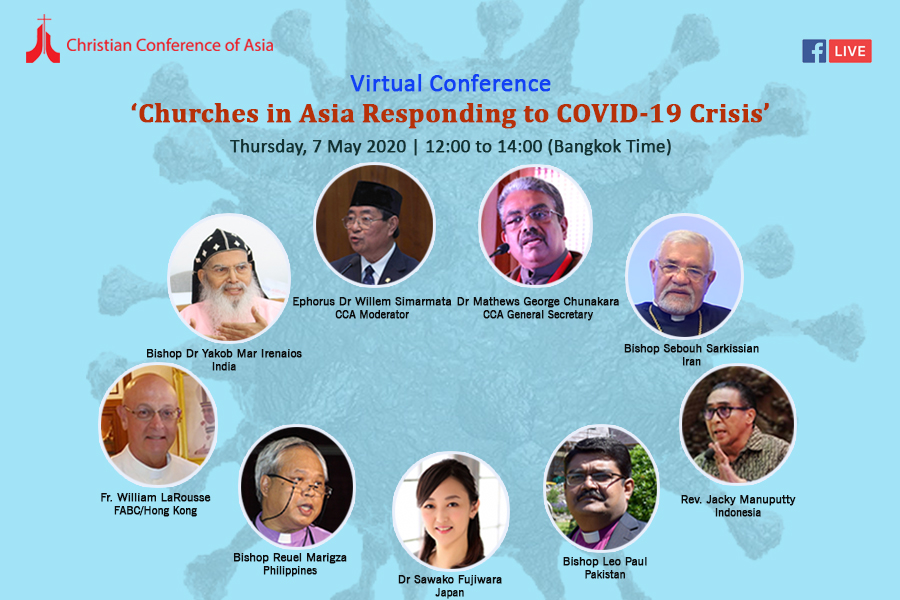CCA’s second virtual conference to highlight ‘Churches in Asia Responding to COVID-19 Crisis’

The second in a series of virtual conferences (webinars) initiated by the Christian Conference of Asia (CCA) in the context of the global COVID-19 pandemic will focus on ‘Churches in Asia Responding to COVID-19 Crisis’, and will be held on Thursday, 7 May 2020 from 12:00 to 14:00 (12 PM to 2 PM) Bangkok time.
Prominent Asian church and ecumenical leaders from CCA member constituencies as well as the Roman Catholic church will share Asian churches’ responses as they try to grapple with the impacts of the global COVID-19 pandemic in their specific local contexts.
Asian churches are actively engaged in mitigating the spread of COVID-19. Expressions of solidarity have become more striking and they are evident in the sharing of resources through a variety of actions such as offering medical equipment and assistance, accommodation and shelter facilities to those affected, food provisions under lockdown, medical care, counselling and spiritual care for communities.
Dr Mathews George Chunakara, General Secretary of the CCA, will initiate and facilitate the discussions.
Archbishop Dr Willem T.P. Simarmata, the Moderator of the CCA; Archbishop Sebouh Sarkissian of the Armenian Apostolic Church in Iran; Metropolitan Dr Yakob Mar Irenaios, Chairperson of Churches’ Auxiliary for Social Action (CASA), India; Fr. William (Bill) LaRousse, Deputy General Secretary of the Federation of Asian Bishops’ Conference (FABC); Bishop Reuel Norman Marigza, General Secretary of National Council of Churches in the Philippines; Bishop Leo Paul of the Church of Pakistan; Rev. Jacky Manuputty, General Secretary of the Communion of Churches in Indonesia (PGI); and Dr Sawako Fujiwara, a Japanese theologian from the Lutheran Theological Seminary and Rikkyo University in Tokyo will lead the webinar.
Those who are interested in participating in the webinar may register by clicking on this link – https://forms.gle/LJfd3G4qJYGytLQT8
For additional details, please go through the attached document below –
https://www.cca.org.hk/churches-in-asia-responding-to-covid-19-crisis-concept-note/
Since the webinar can accommodate only 90 participants, registration will be accepted on a first-come, first-serve basis.










